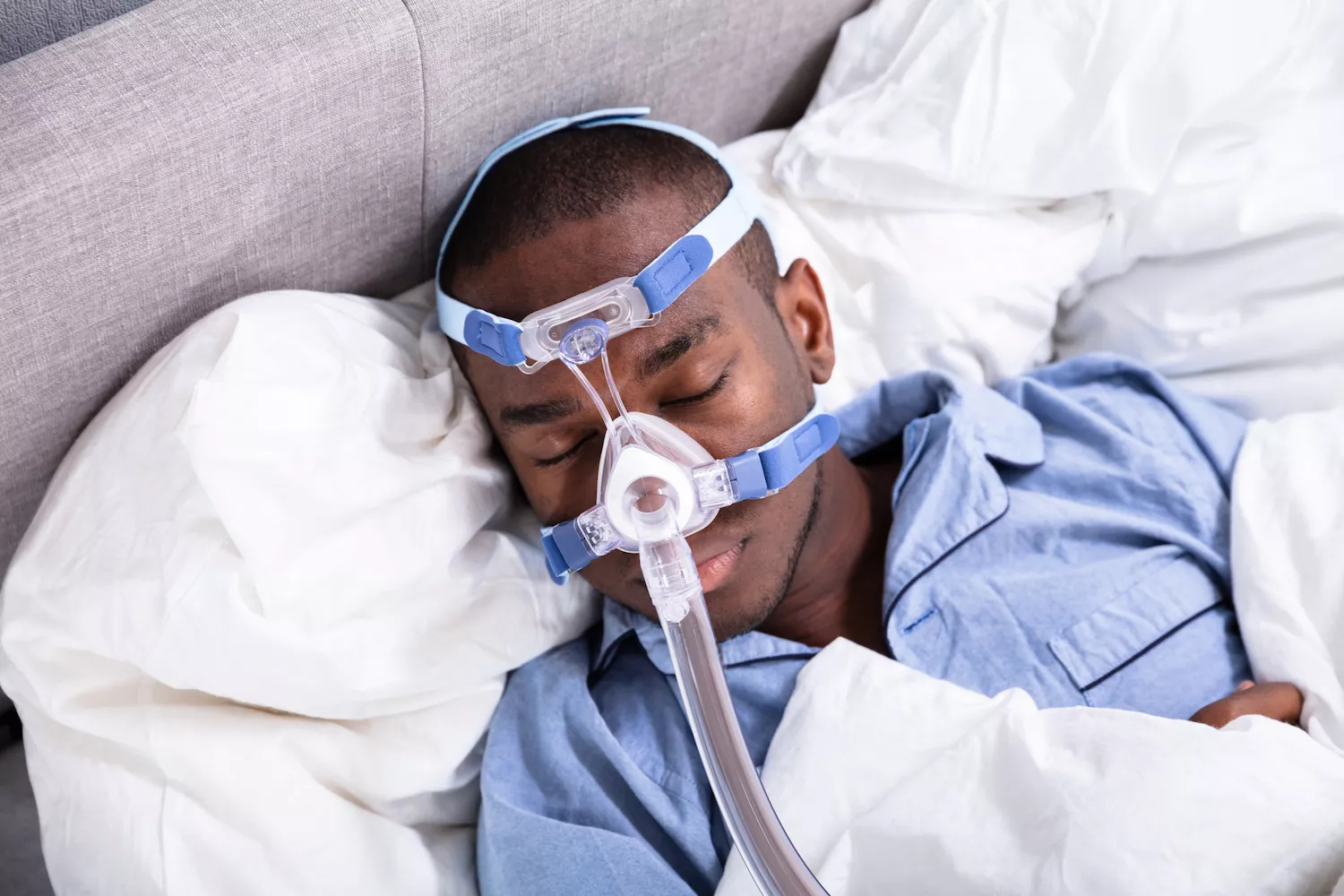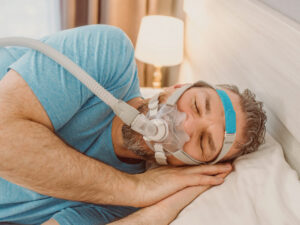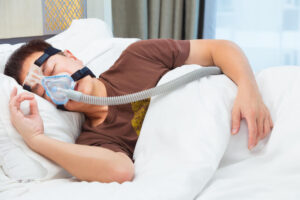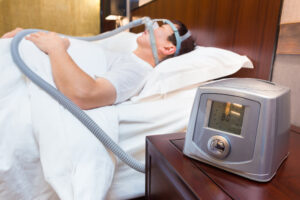Table of Contents
How Much Does a CPAP Machine Cost without Insurance
The cost of a CPAP machine without insurance can vary widely depending on several factors, including the type of machine, the brand, features, and where you purchase it from.
- Standard CPAP Machines: These typically range from $600 to $1,000. They are the most straightforward models, providing a steady stream of air at a fixed pressure throughout the night.
- APAP Machines: Auto-adjusting CPAP machines, or APAPs, can cost anywhere from $500 to $1,200. These machines adjust the pressure automatically based on your breathing patterns.
- BiPAP Machines: Bi-level Positive Airway Pressure machines, or BiPAPs, are more advanced and are typically used for individuals with higher pressure needs or those who have trouble exhaling against CPAP pressure. They can range from $1,300 to $3,000 or more.
- Travel CPAP Machines: Compact and lightweight, these machines are designed for travelers. Prices for travel CPAP machines can range from $600 to $900.
- Additional Costs: Remember to factor in the cost of necessary accessories like masks, tubing, filters, and humidifiers. These can add an additional $100 to $200 or more to the total cost.
- Insurance Coverage: If you have insurance, it’s worth checking with your provider to see what portion of the cost they cover. This can significantly reduce your out-of-pocket expenses.
- Online vs. In-Person Purchase: Prices can vary depending on where you buy the machine. Online retailers often offer competitive pricing, but it’s important to purchase from a reputable source.
| Machine Type | Average Cost | Cost Range |
|---|---|---|
| Standard CPAP | $750 | $600-$1,000 |
| APAP | $700 | $500-$1,200 |
| BiPAP | $1,600 | $1,300-$3,000+ |
| Travel CPAP | $750 | $600-$900 |
How Much Does a CPAP Machine Cost with Insurance
The cost of a CPAP machine with insurance can vary significantly based on several factors, including your insurance plan’s coverage, the type of CPAP machine you need, and the specific terms of your insurance policy:
- Deductibles and Co-Pays: Your out-of-pocket cost for a CPAP machine will depend on your insurance plan’s deductible and co-pay requirements. If you haven’t met your annual deductible, you may have to pay a larger portion of the cost.
- Coverage Percentage: Insurance plans typically cover a certain percentage of the cost for medical equipment like CPAP machines. This can range from 50% to 80% or more, depending on your plan.
- Rental vs. Purchase: Some insurance plans initially cover the cost of renting a CPAP machine, and if you use it consistently for a set period (like 3 to 12 months), they may then cover the purchase.
- Preferred Suppliers: Insurance companies often have preferred suppliers or in-network providers. Purchasing your CPAP machine from these suppliers can significantly reduce your costs.
- Prescription and Compliance: A prescription from a healthcare provider is typically required for insurance coverage. Additionally, some insurance companies may monitor usage to ensure the CPAP machine is being used as prescribed.
- Type of Machine: The cost can also vary depending on whether you need a standard CPAP, an APAP (Auto-adjusting CPAP), or a BiPAP (Bi-level CPAP) machine. More advanced machines generally cost more.
- Additional Costs: Even with insurance, you might have to pay for accessories like masks, tubing, filters, and humidifiers out of pocket.
- Maximum Allowable Amount: Insurance plans usually have a maximum allowable amount they will pay for a CPAP machine, which might not cover the full cost of the model you choose.
To get a precise estimate of what you would pay with your insurance, it’s best to contact your insurance provider directly. They can provide information specific to your plan and coverage.
How Much Does a CPAP Machine Cost with Medicare
With Medicare, you typically won’t pay the full cost of a CPAP machine. Medicare Part B covers 80% of the approved cost of a CPAP machine and related supplies. You’ll be responsible for the remaining 20% co-insurance, plus the Part B deductible applies before Medicare starts paying. This deductible is currently $226 in 2024.
Rental Option:
- Medicare also offers a 13-month rental option with specific conditions. During this period, you only pay the 20% co-insurance, and if you use the machine regularly, Medicare eventually covers the remaining 80% and the machine becomes yours.
Cost Range:
- CPAP machines themselves can range from $649 to $989 on average. BiPAP machines, used for more complex cases, are typically more expensive, around double the price.
- Additional costs include masks, tubing, filters, and other supplies, covered at 80% by Medicare after the deductible.
Factors Affecting Cost:
- Type of machine: Basic CPAP machines are less expensive than those with advanced features like auto-adjusting pressure or heated humidifiers.
- Brand and model: Different brands and models can vary significantly in price.
- Supplier: Comparing prices at different durable medical equipment (DME) providers can help you find the best deal.
Remember, the most important thing is to get the CPAP machine that’s right for you to ensure effective treatment for your sleep apnea. Don’t hesitate to talk to your doctor and compare options before making a decision.
Here are some resources that you might find helpful:
- Medicare’s website on CPAP coverage: https://www.medicare.gov/coverage/continuous-positive-airway-pressure-devices
- The National Council on Aging’s guide to CPAP machine costs: https://www.cms.gov/medicare-coverage-database/view/ncacal-decision-memo.aspx?proposed=N&NCAId=204
- The American Academy of Sleep Medicine’s information on CPAP therapy: https://aasm.org/
How Much Do CPAP Supplies Cost
The cost of CPAP supplies can vary depending on several factors, including the specific item, brand, features, and where you purchase it. Just so that you can get an idea, here’s a general breakdown of typical costs for some common CPAP supplies:
CPAP Masks Cost
- $50-$200: This is the typical range for masks, with basic models on the lower end and advanced models with features like comfort cushions or heated air on the higher end.
- Replacement parts: Mask cushions and headgear may need to be replaced every 3-6 months, and typically cost $20-$75.
CPAP Tubing Costs
- $10-$35: Standard tubing falls within this range, while heated tubing with temperature control can cost $40-$75.
CPAP Humidifier Cost
- $20-$50: Basic humidifiers fall within this range, while those with advanced features like automatic humidity control or integrated water tanks can cost more.
CPAP Filters
- $1-$10: Disposable filters are very affordable, while reusable filters that require cleaning may cost $5-$20.
Other CPAP Supplies
- Headgear ($30-$50)
- Water chambers ($15-$70)
- Chin straps ($10-$30)
- Cleaning wipes or solutions ($5-$20)
How Much Do CPAP Cleaning Supplies Cost
Just like with the cost of a CPAP machine or accessories, the cost of CPAP cleaning supplies can vary depending on the type of supplies you need and the brand you choose.
Basic CPAP Supplies Cost
- Mask wipes: $5-$10
- Mask and hose soap: $5-$10
- Tube brushes: $10-$15
- Disinfectant wipes: $10-$15
- Replacement filters: $10-$40
CPAP Cleaning Machines:
- Ozone cleaners: $150-$250
- UV light cleaners: $200-$300
Other Factors that Influence the Cost of Your CPAP Cleaning Supplies
- The type of mask you have: Some masks are easier to clean than others, and you may need different supplies for different types of masks.
- The frequency of cleaning: If you need to clean your CPAP equipment more often, you will need to buy more supplies.
- The brand of supplies you choose: Some brands of supplies are more expensive than others, but they may also be more effective.
How to Save Money on CPAP Cleaning Supplies
- Buy in bulk: You can often save money by buying CPAP cleaning supplies in bulk.
- Look for coupons and discounts: Many online retailers offer coupons and discounts on CPAP cleaning supplies.
- Consider buying generic brands: Generic brands of CPAP cleaning supplies are often just as effective as name brands, but they are usually cheaper.
- Take care of your equipment: Keeping your CPAP equipment clean and in good condition can help you avoid having to replace it as often, which can save you money in the long run.
CPAP Machine Price Amazon
Price Range of CPAP Machines on Amazon: basic models: $200-$400, mid-range models: $400-$800; premium models: $800-$1500+
Tips for Finding Good Deals on Amazon
- Compare prices from different sellers.
- Look for deals and coupons.
- Consider refurbished models.
- Read reviews before you buy.
How to Get a CPAP Machine for Free
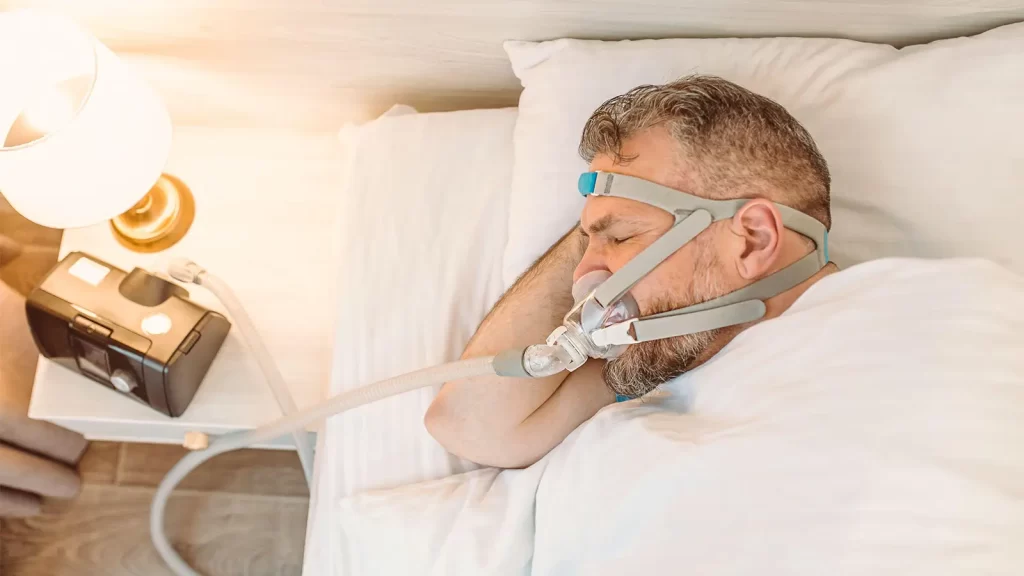
Eligibility for free CPAP machines varies based on income, insurance coverage, and program requirements. It’s important to have a prescription from a doctor to obtain a CPAP machine.
Here are several ways you can explore to potentially get a CPAP machine for free:
Insurance Coverage
- Medicare: If you’re 65 or older or have certain disabilities, Medicare Part B typically covers 80% of CPAP costs after you meet your deductible.
- Medicaid: Medicaid coverage for CPAP machines varies by state, so contact your local Medicaid office to see what’s available.
- Private Insurance: Many private health insurance plans cover CPAP machines, but you’ll usually need a prescription from your doctor and may have to meet certain criteria.
Assistance Programs
- American Sleep Apnea Association (ASAA) CPAP Assistance Program (CAP): Offers refurbished CPAP machines and masks for a $100 program fee to those who meet financial hardship criteria.
- Reggie White Foundation: Provides free CPAP machines and supplies to those with severe sleep apnea who can’t afford them, with priority given to those with higher apnea-hypopnea index scores. A $25 shipping and handling fee applies.
- Breathe California: Redistributes donated CPAP machines for a suggested donation of $55-$105, depending on machine type.
- Other local charities and organizations: Many local organizations offer assistance with CPAP machines, so check with your community health centers, sleep clinics, or social service agencies.
Manufacturer Programs
- ResMed: Offers financial assistance through its “Healthy Sleep for Life” program, based on income eligibility.
- Philips Respironics: Provides a “PAP Patient Assistance Program” for those who meet certain criteria.
- Other manufacturers: May have similar programs, so check with the manufacturer of your preferred CPAP machine.
Veterans Affairs (VA)
If you’re a veteran with sleep apnea, the VA may provide CPAP machines and supplies through its healthcare benefits.
How Much Does a Resmed CPAP Machine Cost
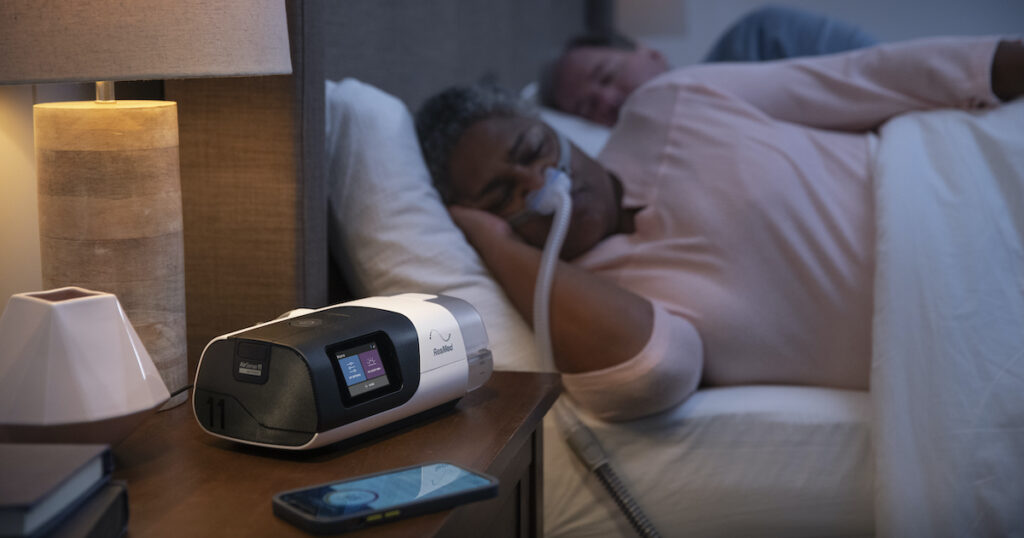
The cost of a ResMed CPAP machine can vary significantly depending on the specific model, its features, and where you buy it from.
Examples of ResMed CPAP machines and their approximate costs:
- AirMini: Portable travel CPAP, priced around $500.
- AirSense 10 AutoSet: Popular auto-adjusting CPAP with standard features, priced around $800-$1000.
- AirSense 11 AutoSet for Her: Advanced model with features specifically designed for women, priced around $1200-$1400.
- AirCurve 10 VAuto: Bilevel PAP machine for complex sleep apnea, priced around $1500-$2000.
Cost of CPAP Machine Rental
Renting a CPAP machine can be a good option if you need one for a short period of time, such as while traveling or during a trial period. Yet, remember that renting is ultimately more expensive than buying in the long run. Over the course of several years, you’ll end up paying more in rental fees than you would have if you had purchased the machine outright.
The cost of renting a CPAP machine can vary depending on several factors, including:
- Rental duration: Most rentals have a minimum period, often one month, but the longer you rent, the lower the monthly cost might be.
- Machine type: Basic CPAP machines are generally cheaper to rent than advanced APAP models with more features.
- Rental company: Different companies have different pricing structures and promotions. Be sure to compare prices from several providers before making a decision.
Here’s a general range of what you can expect to pay for renting a CPAP machine:
- Monthly: $29 to $69 per month
- Weekly: Around $200 per week
Additional costs to consider:
- Setup fee: Some companies charge a one-time setup fee, typically around $50 to $100.
- Deposit: You may be required to put down a deposit for the machine, which will be refunded to you when you return it.
- Insurance coverage: Check with your insurance provider to see if they cover CPAP machine rentals. This can significantly reduce the cost.
Does Insurance Cover CPAP Machine
Yes, most insurance plans do cover CPAP machines at least partially. This is because CPAP therapy is considered an effective treatment for obstructive sleep apnea (OSA), a serious medical condition that can lead to a number of health problems, including:
- High blood pressure
- Heart disease
- Stroke
- Diabetes
- Depression
- Memory problems
- Obstructive sleep apnea
- What is covered by insurance?
The specific coverage for CPAP machines and supplies varies depending on your insurance plan. Most plans will cover at least some of the following:
- The CPAP machine itself
- The mask and tubing
- Humidifier (if needed)
- Replacement parts and supplies
- What is not covered by insurance?
Some things that may not be covered by insurance include: cleaning supplies, travel CPAP machines, additional features or accessories for your CPAP machine.
How to Save on the Cost of a CPAP Machine
The cost of a CPAP machine can range from $300 to $3,000, making it a significant investment for anyone diagnosed with sleep apnea. However, there are several ways to save money on this essential medical device:
- Check your insurance coverage. Most insurance plans cover at least some of the cost of a CPAP machine. Be sure to contact your insurance company to find out what your specific plan covers. You may also need to get a prescription for a CPAP machine from your doctor.
- Consider buying a used or refurbished machine. Used and refurbished CPAP machines can be significantly cheaper than new ones, and they can be just as effective. Just be sure to buy from a reputable dealer and make sure the machine has been properly cleaned and sanitized.
- Rent a CPAP machine. Renting a CPAP machine can be a good option if you only need it for a short period of time, such as while traveling or during a trial period. However, renting is generally more expensive than buying in the long run.
- Look for discounts and promotions. Many CPAP machine manufacturers and suppliers offer discounts and promotions throughout the year. You can also find discounts on CPAP machines through online retailers and membership clubs.
- se your HSA or FSA. If you have a Health Savings Account (HSA) or Flexible Spending Account (FSA), you can use these funds to pay for your CPAP machine and supplies. This can be a great way to save money if you have the option.
- Ask about financial assistance programs. There are a number of financial assistance programs available to help people afford CPAP machines. These programs are often offered by CPAP machine manufacturers, sleep apnea organizations, and charitable foundations.
- Take care of your CPAP machine. By taking care of your CPAP machine, you can extend its lifespan and avoid having to buy a new one sooner than necessary. Be sure to clean your machine regularly according to the manufacturer’s instructions, and replace the filters and other supplies as needed.
Here are some additional tips for saving money on a CPAP machine:
- Do your research. Before you buy a CPAP machine, do some research to compare prices and features from different manufacturers.
- Shop around. Get quotes from several different CPAP machine suppliers before you make a decision.
- Don’t be afraid to negotiate. You may be able to negotiate a lower price with the supplier, especially if you are paying cash.
- Ask about payment plans. Some CPAP machine suppliers offer payment plans that can make it easier to afford the cost of the machine.
By following these tips, you can save money on the cost of a CPAP machine and get the treatment you need to improve your sleep and your health.
FAQ on How Much Does a CPAP Machine Cost
What Is Typical Cost of CPAP?
CPAP machines can vary in price depending on the type, features, and whether you buy new or used. Standard models typically range from $500 to $1,000, while auto-adjusting ones cost between $600 and $1,600. BiPAP machines are pricier at $1,700 to $3,000 due to their more complex functionality. Features like humidifiers and heated tubing add to the cost, and used machines offer significant savings but require careful inspection.
Can I Just Buy a CPAP Machine?
Unfortunately, you cannot simply buy a CPAP machine over the counter in the US. While they are considered medical devices, regulations require a prescription from a doctor or qualified healthcare provider before you can purchase one. This ensures you get the right therapy for your specific needs and avoids potential risks associated with using the wrong settings or type of machine.
How Many Years does a CPAP Machine Last?
While most CPAP machines last around five years with proper care, some can chug along for a decade. Durability depends on the brand, how you treat it, and how much it travels. Telltale signs of a tired machine include loud noises, weakened performance, or even cracks. Keep in touch with your sleep specialist, as they can assess its health and advise on replacement.
Can I Get a CPAP Machine without Doing a Sleep Study?
While technically possible in some cases, obtaining a CPAP machine without a sleep study isn’t ideal. Sleep studies provide crucial insight into your individual sleep patterns and the severity of your apnea, ensuring the right therapy and pressure settings. Skipping it might lead to an ineffective machine or even harmful pressure levels. While some home test kits or limited clinical evaluations may suffice in specific situations, always prioritize consulting a healthcare professional for a thorough diagnosis and appropriate treatment plan. Your health is worth the comprehensive approach.
Why Are CPAP Machines So Expensive in 2024?
The high cost of CPAP machines in 2024 is a multifaceted issue. The ongoing supply chain disruptions due to the pandemic have increased manufacturing and distribution costs. The 2021 Philips Respironics recall further exacerbated the problem by removing a significant portion of machines from the market, creating a temporary scarcity and driving up prices for remaining options. Advancements in technology like auto-adjusting pressure and data tracking features have undoubtedly improved CPAP therapy but also contribute to higher price points. Limited competition due to a lack of generic alternatives further intensifies the issue.
Why Are CPAP Supplies So Expensive?
CPAP supplies are often expensive due to a combination of factors including the high costs associated with research and development, the use of medical-grade materials, and the need to comply with stringent regulatory standards. These devices, which are crucial for treating sleep apnea, incorporate advanced features like humidifiers and data tracking, further driving up costs. The market’s limited competition and the dynamics of insurance and healthcare systems also play a significant role in pricing.
How Often Does Insurance Pay for CPAP?
In the United States, insurance coverage for CPAP therapy is commonly included in most private health insurance plans as well as Medicare, provided the treatment is deemed medically necessary and prescribed by a doctor. The extent of this coverage, however, can vary significantly between different insurance policies. While some plans may cover the entire cost of CPAP equipment, including the machine, mask, and tubing, others might only pay a portion, leaving patients with co-pays or deductibles.
Is It Better to Rent or Buy a CPAP Machine?
Renting a CPAP machine can be a cost-effective option for short-term use, such as for a trial period recommended by a doctor to ensure the treatment’s effectiveness, or for temporary needs. It allows patients to test different machines and find the one that suits them best without a significant upfront investment. On the other hand, buying a CPAP machine is generally more economical in the long run, especially for those who require long-term therapy. While the initial cost is higher, owning the machine eliminates ongoing rental fees.
